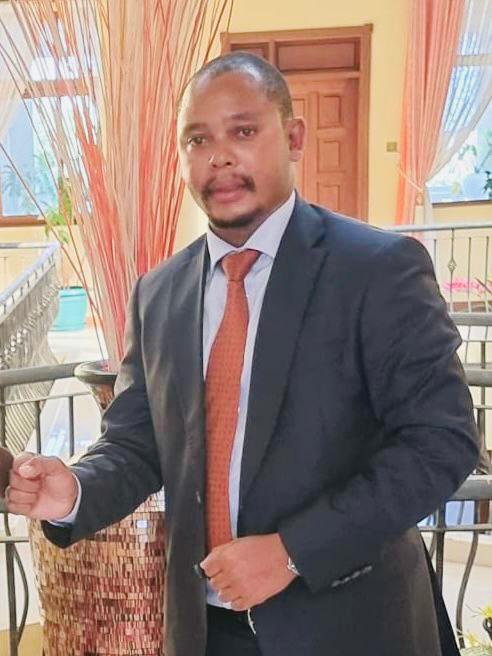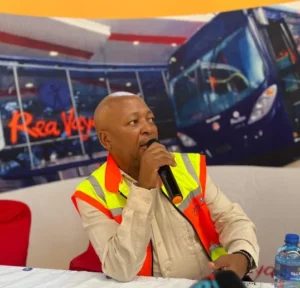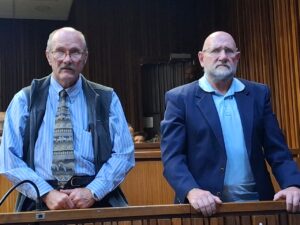By: Mphumzi Mdekazi
Polling is a guess game and not an exact science. Polls are not predictive, they are based on models which are built on assumptions and deductions that are based on assumptions that are not truths.
Academic literature has documented how journalists largely rely on institutional sources, notably political elites, which produces a top-down perspective of the world around us. After all, those who set the media agenda equally craft the questions and define the answers that set the narrative in hotly contested political environment in a democracy as ours.
Ferial Haffajee’s article in Daily Maverick is a case in point. And Haffajee ropes in “scenario architect”, Jakkie Cilliers of the Institute for Security Studies, to analyse likely scenarios to be imagine on the future of South Africa.
A cut-and-paste job of four dissimilar scenarios that predict the demise of the African National Congress (ANC) in one form or the other. An exercise in myth-making that casts President Cyril Ramaphosa as the principle actor in this série noire.
Leaning on Cilliers’ scenarios, Haffajee paints specious analyses of a smorgasbord of scenarios, and peddles a politically bleak and unstable future for South Africa. Cilliers, on the other hand, pontificates that in three of the scenarios the ANC “will not win the 2024 election” and “less likely that the so-called Radical Economic Transformation (RET) faction of the governing party wins its elective conference”.
In case we forgot, the same argument was advanced for President Ramaphosa’s election at the last elective conference in 2017. If we follow the logic of Cilliers’, President Ramaphosa will win the elective conference but loose the 2024 elections.
Now why would the ANC re-elect President Ramaphosa who would then lead the party into defeat in 2024? And why would it follow the path neocolonial logic and begin “a period of decline mirrored in the fortunes of African liberation movement parties”?
Let’s take a closer look at Cilliers’ scenarios and Haffajee’s narrative.
In Cilliers’ “Bafana Bafana” scenario, President Ramaphosa’s re-election will result in the ANC becoming “a largely rural party where it continues to hold a majority with support from local businesses built around the state procurement system, and former homeland factions who hold sway in many provinces”.
A condescending characterization of the majority of South Africans, and a damning indictment, packaged as an academic critique, of President Ramaphosa leadership of the ANC.
Then there is the “Thuma Mina” scenario. It projects that “President Ramaphosa wins convincingly at the 2022 conference, and the ANC wins a narrow majority of 51% in the 2024 election”. Fortunately for President Ramaphosa according to Cilliers, the “RET faction splinters off” and absorbed into Julius Malema’s Economic Freedom Fights (EFF). Ridiculously symplistic.
To continue the narrative on the demise of the ANC without President Ramaphosa, Haffajee introduces the “Nation Divided” scenario where Cilliers forecasts “the RET faction wins in December 2022, has a year in which it can extract rents and then the ANC loses in 2024” and continues its accelerated descent to oblivion in the 2029 election. This is fearmongering at its lowest.
In the “oddly named “Mandela Magic”” scenario, Haffajee’s description, “President Ramaphosa does not run at the ANC elective conference and leads a breakaway from the governing party … and the ANC falls to 34% support in 2024”; continuing its self-distructive plunge into ignominy.
Cilliers concedes this is “the least-likely outcome”. This advances the narrative that President Ramaphosa will stay, will contest the elective conference, and will win. Haffajee serves up a braai: “all four scenarios, the winners are coalitions, which now define South Africa’s political future” and “the upshot is that President Ramaphosa is likely to get a second term as President but as the leader of a coalition government”.
But Cilliers rains on the party and “predicts considerable political turbulence for South Africa whichever way it goes”; predicting civil unrest and turmoil. According to Haffajee, and Cilliers scenarios, the “renewal” of the ANC could in no way be led by any other leader than President Ramaphosa to rescue the party, and the country, from the doomsday scenarios. Haffajee labels anyone opposing President Ramaphosa in the ANC as belonging to the RET faction.
If we follow Haffajee’s illogic further, there are no alternatives to President Ramaphosa in the ANC even in the eventuality of President Ramaphosa’s leadership of the party, resulting in calamatous defeat of the party in future national elections. By this, she (Havejee) is unconsciously narrowing the claim herself on journalistic ethos and credibility, because she is used in writing to passive audiences and take a risk of bringing to the fore questionable polls.
It is strange that Haffajee makes no reference to President Ramaphosa’s previous electoral performance in all of what she calls analysis. Then the question is; how is she (Haffajee) hoping to be taken serious with this kind of poorly conducted analytical work, when she not only negated, but indolently obliterated the hallmarks and rituals of scholarship in her final product if she is hoping to objectively sway the public?
Lindiwe Sisulu is disdainfully brushed aside because she is a woman who dared contest democratic elections for the ANC leadership in 2017 and lost. Haffajee doesn’t offer an inkling of analysis on whether Sisulu will contest the 2022 ANC election or on her chances of victory. Zweli Mkhize, on the other hand, is naively written-off as a serious contender as he battles to clear his name in a media scandal that threatened to scupper an otherwise promising political career. Here, again, Haffajee fails to offer an objective analysis and exposes her political bias. This balanced analytical failure renders her as a Thumamina spokesperson deductively.
One of the great confusions about journalism, wrote Bill Kovach and Tom Rosenstiel in The Elements of Journalism, is the concept of objectivity. When the concept originally evolved, it was not meant to imply that journalists were free of bias. Quite the contrary. Ferial Haffajee is proof notwithstanding her efforts to project an image of objectivity.
It is public knowledge that separately or together, both ANC leaders that Haffajee flimsly writes-off are credible challengers with a strong liberation struggle credentials than that of her preferred candidate, they have a base and popular support to contest President Ramaphosa’s re-election campaign in the run-up to the ANC’s elective conference in December 2022.
South African society may be in transition, and the country may be a politically fractured place, but it is not beyond repair. The same could be also said of an ANC faced by contesting internal and external forces to its organic transition in a new era with new expectations.
South Africa shall stretch forth her hands unto the imagined future bequeathed by our founding fathers. All South Africans have sacred duty to prove the doomsayers wrong. South Africa and Africa shall rise.
*Mphumzi Mdekazi is member of the African National Congress (ANC) at AB Xuma Branch in the Boland Region (WC) and a PhD c at Stellenbosch University. He writes in his personal capacity as an ANC member.







